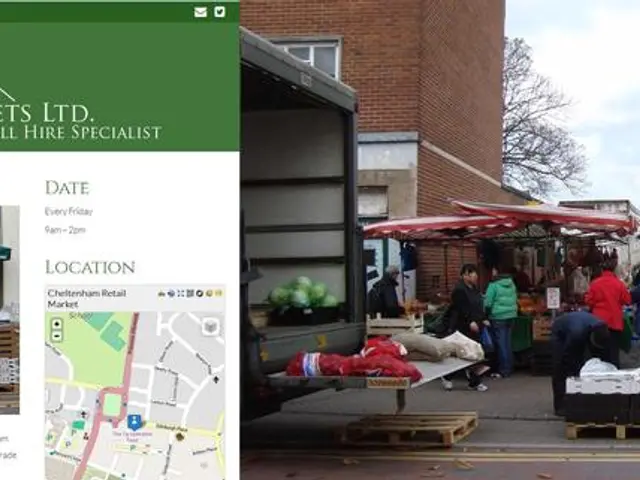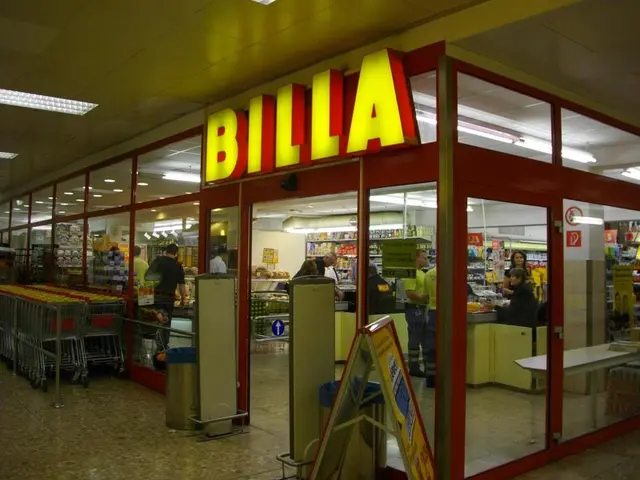Guidelines for Commencing a Coffee Roasting Venture
The specialty coffee industry continues to grow, with an increasing demand for high-quality, freshly roasted beans. This trend presents exciting opportunities for aspiring entrepreneurs looking to start their own coffee roasting business. Here's a structured guide based on recent industry insights to help you navigate the process.
1. **Research and Planning** Begin by understanding the coffee roasting market and identifying potential customers, such as cafes, retailers, and consumers. Define your business model, whether it's direct sales, wholesale, subscription, or a combination. Create a detailed business plan covering budget, marketing, sourcing, and operations.
2. **Equipment Selection** Choose a roaster that suits your production scale and budget. For small businesses, entry-level roasters cost between $1,000 and $7,500, with batch sizes ranging from 1 to 3 kg. The Coffee Crafters Valenta 3, an all-electric fluid bed roaster, is a popular choice, costing around $4,800 to $5,799. This roaster is suitable for startups with batch sizes from 200 grams to 3 pounds and a production capacity of approximately 21 pounds per hour.
3. **Sourcing Green Coffee Beans** Establish relationships with reliable suppliers of quality green coffee beans. This could be importers, cooperatives, or direct farmers. Kenyan, South American, and Jamaican beans are top single-origin suppliers, with Brazil leading the way.
4. **Facility Setup** Secure a commercial space that complies with local regulations for food processing and safety. Install roasting equipment, cooling trays, chaff collectors, and packaging stations.
5. **Roasting and Training** Develop unique coffee flavours and consistency by experimenting with roasting profiles. Train yourself or staff in roasting techniques, machine operation, and quality control.
6. **Branding and Packaging** Create a brand identity with a logo, packaging design, and labeling that meets regulatory requirements. Consider eco-friendly packaging to appeal to your target market.
7. **Marketing and Sales Channels** Develop a marketing strategy that includes local cafes, farmers' markets, online sales, or wholesale accounts. Use social media, tastings, and partnerships to build awareness.
8. **Legal and Financial Steps** Register your business, obtain necessary licenses and food safety certifications. Set up accounting, insurance, and comply with health codes.
9. **Launch and Scale** Start small to refine operations and customer feedback. Adjust roasting schedules, expand sales channels, and scale production as demand grows.
Starting a coffee roasting business requires investment in equipment, customer knowledge, and a passion for quality coffee. Choosing a roaster in the $1,000 to $7,500 range or a model like the Coffee Crafters Valenta 3, which costs around $4,800 to $5,799, is suitable for small startups aiming for up to around 21 pounds of roasted coffee per hour. Hands-on experience or training is strongly recommended for consistent quality.
Before making an initial investment, decide on a business name, brand your business, write a business plan, and choose a business structure. Sustainability is increasingly important in the coffee industry, so consider sourcing beans from fair trade and organic certified suppliers, implementing energy-efficient roasting practices, using eco-friendly packaging, and minimizing waste. Good luck on your coffee roasting journey!
- To ensure success in a coffee roasting business, it's crucial to invest in education-and-self-development, particularly in understanding the nuances of coffee trading and the financial implications of running a business.
- In the fast-paced world of technology, staying updated on the latest roasting techniques and equipment advancements can provide a competitive edge in the specialty coffee industry.
- As the demand for high-quality coffee increases, a lifestyle centered around coffee and its culture can not only be enjoyable but also serve as a valuable asset in attracting clientele and fostering a strong brand identity.
- Aside from focusing on the roasting aspect, it's essential to consider diversifying income streams by exploring ventures such as offering coffee-making classes or writing a blog about coffee investing. In addition, sponsoring local sports events could help boost your coffee business's visibility and appeal.








